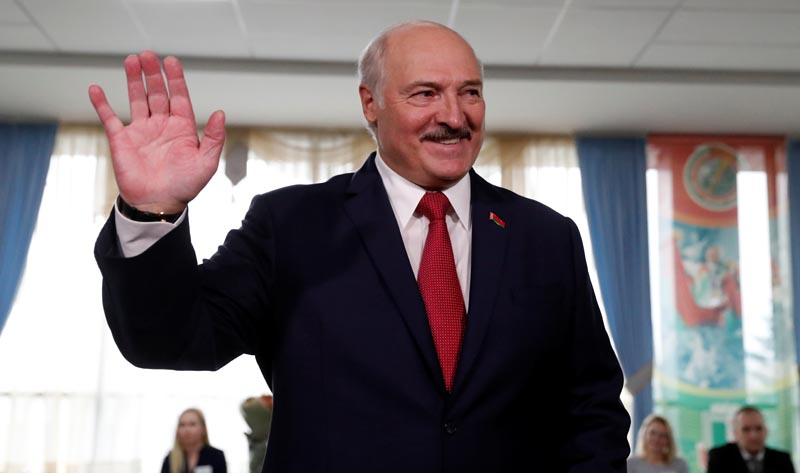Belarus holds parliamentary election as strongman leader keeps grip
MINSK: Belarus voted on Sunday in parliamentary elections that will be closely watched by the West to see how much leeway President Alexander Lukashenko will allow opposition candidates while keeping his grip on power.
Lukashenko, 65, has ruled the East European country with an iron fist for a quarter of a century, but has begun allowing some opposition in a bid to foster ties with the West as relations with Moscow sputter.
Speaking to reporters after casting his ballot, Lukashenko played down the influence any opposition lawmakers could have while also announcing he would stand for another term as president next year.
"I take into account how our elections will be received in the West and in the East, but we are holding these elections for ourselves," he said.
"Well, what difference does it make to the president if there are 3-4 opposition members?" he added. "They will not determine politics."
A buffet that included stuffed pike, chickens and pies was laid out at the president's polling station. Providing buffets is a Belarus tradition to encourage citizens to vote.
Lukashenko also used the occasion to threaten Russia with pulling out of signing an integration deal next month unless Moscow resolved a dispute over energy subsidies.
NO CHANGE POSSIBLE
In September, the US and Belarus announced they would resume ambassadorial relations for the first time since 2008.
Washington also signalled it might further scale back sanctions on Minsk depending on how Sunday's parliamentary elections and the 2020 presidential vote are conducted.
US and European Union sanctions imposed on Belarus over its treatment of political opponents were mostly lifted in 2016 following the release of political prisoners and other reforms.
But relations with Russia, a traditional ally, suffered after Minsk refused to recognise Moscow's annexation of Ukraine's Crimea peninsula in 2014.
Moscow also cut subsidies to Belarus that have long kept the country of 9.5 million in its orbit.
Lukashenko has bristled at what he sees as Russia's attempt to strongarm his country into merging with its much larger neighbour, and accused Moscow of falling into "hysterics" over his moves to balance ties between East and West.
On Sunday he threatened to pull out of signing a roadmap to bring their economies closer together that could include a unified tax code and a single regulator of oil, gas and electricity markets.
At the last parliamentary elections, in 2016, Lukashenko allowed two opposition candidates to win seats in the 110-member parliament for the first time in two decades, though both have been barred from standing this time around.
"The result has long been determined. The authorities have selected approved candidates. A change of power in Belarus is not possible through elections," Nikolai Statkevich, a leading opposition figure, told Reuters.
"Belarus faces being incorporated into Russia. Lukashenko is resisting, but he has no leverage for a long resistance," said Statkevich, who was imprisoned for four years after running against Lukashenko for the presidency in 2010.
Weak economic growth has prompted some election candidates loyal to Lukashenko to speak about the need for reform rather than maintaining stability.






